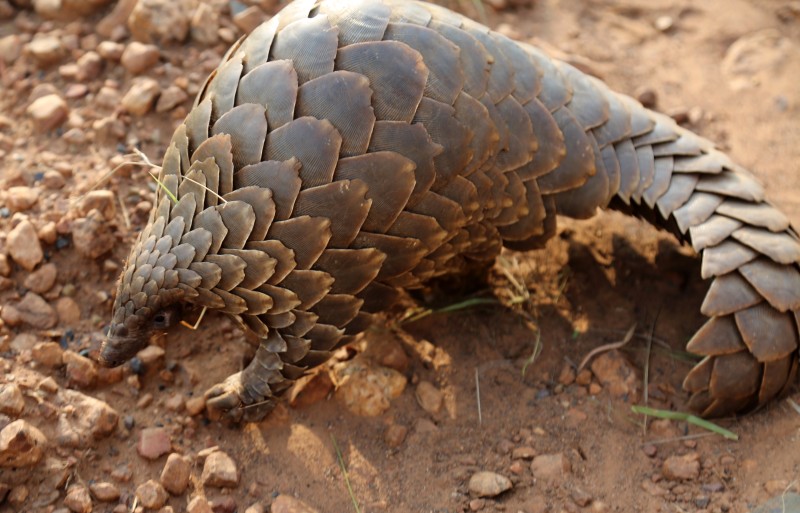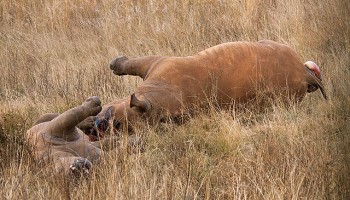Reported by
Trafficking of pangolin scales and ivory from Africa to Asia has dropped sharply and consistently since 2020, according to a Wildlife Justice Commission (WJC) report released Wednesday, signaling a major shift in global smuggling networks.
The report, “Disruption and Disarray: An analysis of pangolin scale and ivory trafficking, 2015–2024,” links the decline to the COVID-19 pandemic’s impact on global transport and sustained law enforcement pressure, including arrests of high-level traffickers and disrupted supply chains in Africa.
“This significant reduction in the trafficking of pangolin scales and ivory is a testament to the critical impact of focused and collaborative law enforcement efforts,” said Olivia Swaak-Goldman, Executive Director of the WJC. She credited international cooperation and strategic arrests with dismantling criminal operations “at an industrial scale.”
She noted the WJC’s partnership with the Nigeria Customs Service as a case study in how pressure at key trafficking hubs can reverberate globally. Continued targeting of crime bosses and financiers, she said, is key to long-term disruption of wildlife crime.
According to the report, multi-ton seizures of pangolin scales and ivory have become rare since 2020, with major interceptions now occurring within Africa before goods reach ports. No significant pangolin scale shipments have been seized at seaports in the past three years—an indicator of broken supply chains. However, stockpiles continue to be found in Nigeria, pointing to ongoing criminal investment and the risk of displacement rather than elimination.
The WJC warns that a decrease in reported seizures may reflect better enforcement, but it could also signal that traffickers have become more sophisticated, with shipments avoiding detection. Intelligence gaps remain a concern, especially as organized crime groups diversify operations in response to market changes and enforcement actions.
The report coincides with the WJC’s 10th anniversary. Over the past decade, the organization has supported global law enforcement through intelligence-led investigations and international partnerships. It also outlines recommendations to further disrupt trafficking networks, including targeting criminal financiers, strengthening cross-border cooperation, and involving prosecutors early to build stronger cases.
While progress is evident, the report warns that continued international collaboration is essential to prevent a resurgence.





